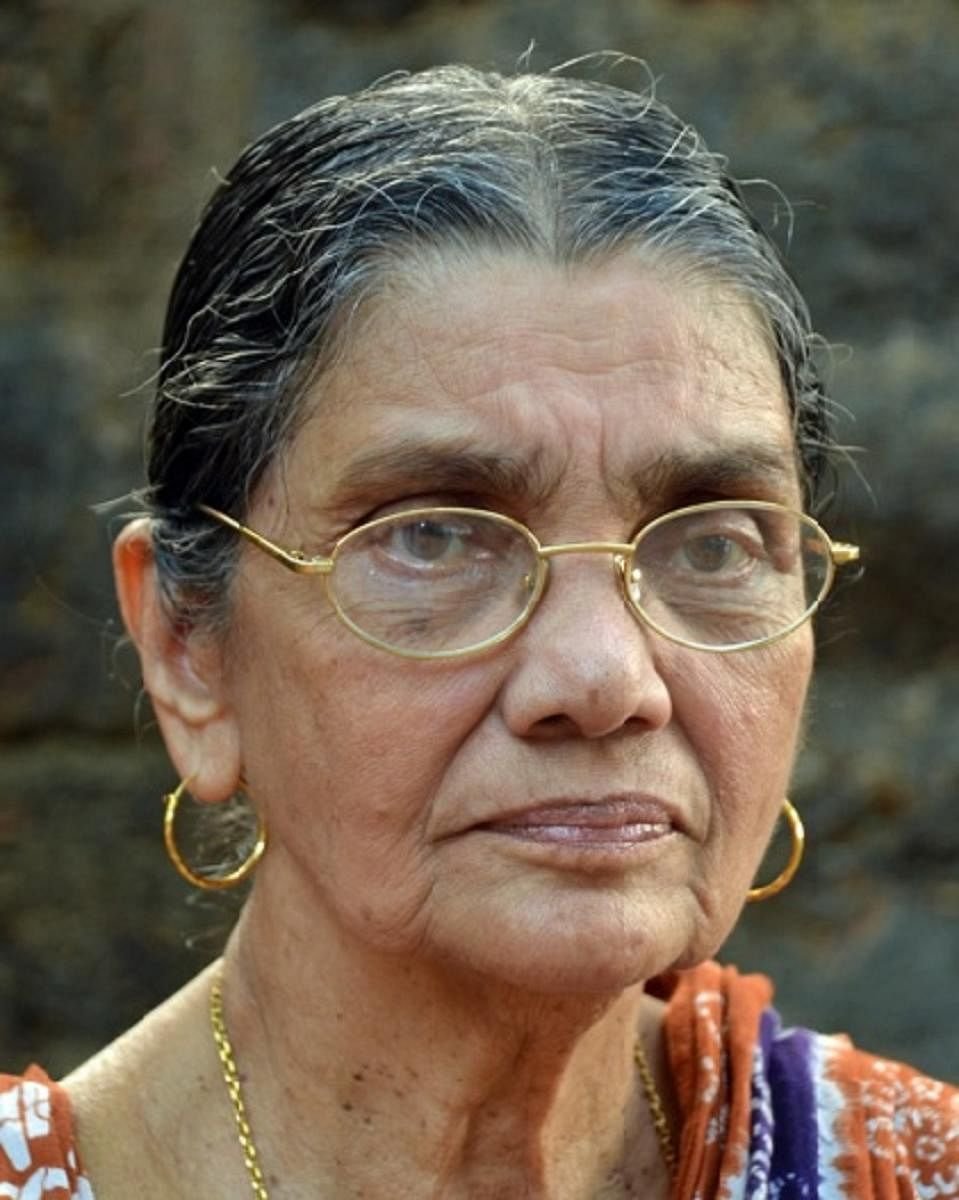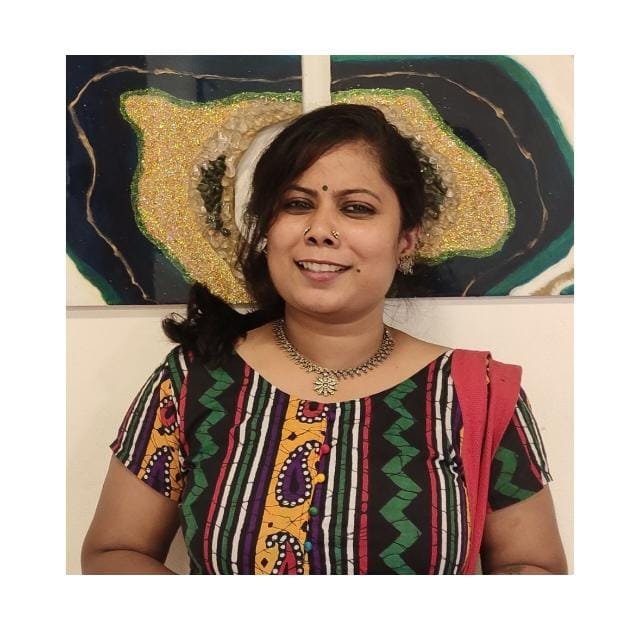
Sara Aboobacker: A Pioneer in Kannada Muslim Women’s Writing
I was a 17-year-old student of English Literature when I first encountered Sara Aboobacker’s writing Chandragiriya Teeradalli (On the Shores of Chandragiri Hills) Feminism, gender discrimination, resilience were words used in the classroom at 8am in the morning. The words started getting concrete as women writers entered my reading life. Reading women writers leads to observing the women in our lives closely. Reading Sara Aboobacker (Image Source of first picture: The Milli Gazette) specially opened the world for the young self to understand the social location and marginality from a diverse point of view.
Sara Aboobacker (1936-2023) holds a prominent place as the first Muslim woman writer in Kannada (A prominent South India language) literature. While Mumtaz, another writer from a coastal district in Karnataka in Southern India, had published stories several years before Sara, it was Sara’s sustained literary career that established her as a pioneering figure. Her contributions as an author, social critic, and voice for marginalized communities define her as the first matrilineal figure in Muslim women’s writing in Kannada.
Sara Aboobacker’s writing career began in the 1980s, a time when Kannada Rebel Literature, known as Bandaya Sahitya, was at its peak. Writers from marginalised communities found a platform in publications like Lankesh Patrike, a progressive weekly committed to amplifying voices of Ex-Untouchables, women, and minorities. Her literary journey commenced with a powerful letter to Lankesh Patrike, condemning a fatwa issued against Najma Bhangi from Bijapur district in Northern Karnataka for watching a movie. This act of defiance marked the beginning of her bold literary career.
Hailing from Dakshina Kannada, alongside notable writers like Bolwar Mahammad Kunhi and Fakir Muhammad Katpadi, Sara focused on critiquing patriarchy within the Muslim community. While her male counterparts wrote from a male perspective, Sara’s perspective as a Muslim woman brought unparalleled authenticity to the lived experience of Muslim women. Her writings exposed the inner realities of a world unfamiliar to the Kannada reading public.
Sara’s literary collection extended across various forms, including novels, short stories, radio plays, dramas, travelogues, and autobiographies. Her narratives were a sharp critique of religious fundamentalist practices, particularly those upheld by the priestly class of the Beary[1] Muslim community. The recurrent themes in her works include – triple talaq (divorce), child marriage, domestic abuse, patriarchial interpretation of Shariat, gender-biased rules and rituals, socio-economic exploitation, restriction of women’s education and rights
The Controversy Surrounding Chandragiriya Teeradalli

Image Source : Prajavani.net
Chandragiriya Teeradalli is the debut novel of Kannada writer Sara Aboobacker, first published in 1981. The novel was initially serialised in the progressive weekly magazine Lankesh Patrike, which was known for amplifying marginalised voices. The narrative centres on Nadira, a young Muslim woman striving for autonomy within a patriarchal society and delves into issues such as triple talaq[2]. The novel has been translated into English by Vanamala Viswanatha under the title Breaking Ties, making it accessible to a broader audience. Chandragiriya Teeradalli is celebrated for its candid portrayal of the challenges faced by Muslim women in coastal Karnataka and Kerala, highlighting Aboobacker’s commitment to addressing social issues through literature.
Chandragiriya Teeradalli stirred controversy in the Kannada literary world. At a seminar in Puttur, a place in coastal Karnataka, organised by Bandaya Sahitya activists (Activists from Kannada Rebel Literature Community) in 1985, Sara faced violent backlash from conservative people who condemned her critique of the practice of easy triple talaq. Despite the traumatic experience, Sara remained undeterred. She continued to write and engage in public discourse, empowered by the unwavering support of her husband and family. Her courage in the face of threats set her reputation as a fearless writer and activist.
Sara’s father, P. Mohammad, was a prominent advocate who had earned a gold medal in Mohammedan Law from Madras University. His dedication to women’s education was evident in his insistence that Sara complete her secondary education before marriage. Her mother, Fathima, though confined to the household, displayed empathetic concern for the struggles of women in her community. This parental influence shaped Sara’s worldview and determination to challenge patriarchal norms.
When critics accused Sara of blasphemy, her father firmly defended her. In one instance, when approached by a community member demanding that he silence Sara, her father responded, “Who should say what is right and what is wrong when it comes to religion? I have been reading everything she writes. I know there is nothing against Islam there.”
Sara’s resilience extended to the courtroom. Following defamatory attacks by the weekly named Sanmarga and the Muslim Writers’ Association, Sara filed a defamation case. Even while observing iddat (the period of mourning) after her husband’s death, she pursued legal action. After four years, the court ruled in her favor, further affirming her unwavering commitment to her principles.
Sara’s influence was not limited to her writings. She was deeply engaged in community service, counselling women facing domestic violence and other injustices. Her advocacy was a direct challenge to religious fundamentalists, earning her both admiration and condemnation. On one occasion, a head of an NGO invited Sara to engage in dialogue with the Muslim community. Her presence led to the eviction of the NGO head, highlighting the entrenched resistance against voices like hers. Despite these obstacles, Sara continued her advocacy with resilience.
Sara’s major works, particularly Chandragiriya Teeradalli and Sahana, remain significant in Kannada literature. Her non-fiction writings stand as testaments to her political and social commitment. Unlike other writers, Sara actively engaged in public discourse, addressing issues ranging from women’s rights, religious intolerance to educational reforms.
Although her literature is poorly represented in school curricula, efforts to preserve her legacy continue. Public libraries, e-books, and translations are potential avenues for ensuring her writings remain accessible. Translating her works into English can further expand her reach to a global audience.
With seven novels, four collections of short stories and one collection of essays to her credit, Sara was honoured with Karnataka Sahitya Akademi Award ( Renowned literary award) for her novel Chandragiriya Teeradalli. She received Anupama Niranjana Award in 1987 for her work Suliyalli Sikkavaru and Bhasha Bharathi Sanmana for her work Tala Odeda Doniyalli in 2001.
Sara Aboobacker’s legacy lies in her fearless defiance against patriarchal oppression and conservatism . Her writings embody a rare balance of religious faith and gender consciousness. As a critical insider of her community, she tirelessly advocated for social change. Her life and work exemplify the courage to question and the resilience to persist. More than a writer, she was a thought leader who fearlessly navigated the complex intersections of religion, gender, and society. Sara’s legacy will endure as a beacon of strength and advocacy for generations to come.
From a 17 year old student to a 33 year old teacher of English literature, my understanding of women and our lived experiences is going through a constant change. As a woman from the oppressed community (ex-untouchable community), resisting patriarchal ideas and practices is running parallel to the resistance towards discrimination that are based on race, religion, and social hierarchy. Writers like Sara Aboobacker have helped shape the understanding of the intersectional approach needed in understanding the lived experiences of women.
As I’m wondering what would have been Sara Aboobacker’s writing for this Muslim History Month, I see her-story being part of this history.
Footnotes:
- Beary / Byari muslims are concentrated in the coastal region mostly in the Mangalore district of Karnataka, a southern Indian state. The Beary/ Byari muslims have a distinct language and culture.
- https://www.aljazeera.com/features/2017/8/22/what-is-triple-talaq-or-instant-divorce
References:
- https://www.mainbhimuslim.com/p/ep21-the-life-of-author-sara-aboobacker
- https://www.loc.gov/acq/ovop/delhi/salrp/saraaboobacker.html
- https://www.thehindu.com/news/national/karnataka/kannada-writer-sara-aboobacker-passes-away/article66360267.ece
- https://www.deccanherald.com/opinion/nadoja-sara-aboobacker-1181139.html
- https://sahitya-akademi.gov.in/library/meettheauthor/sarah_aboobacker.pdf
(The views expressed in this article are the author’s own. Content can be used with due credit to the author and to ‘Zariya: Women’s Alliance for Dignity and Equality’)
ABOUT THE AUTHOR:

Vijayashanthi Murthy is currently working as an Assistant Professor at St. Joseph’s College of Commerce, Bangalore. With ten years of teaching experience, she held positions as an Assistant Professor at St. Joseph’s University and Jain Deemed to be University. She was one of the researchers in two projects at Khanaja Research Centre – Samvada. The major research project was on Young Dalit Women’s Negotiations with Education, Career and Marriage and the minor research project was on Experiences of Young Women Journalists in Kannada Print and Electronic Media.
She is a co-editor of the book Women in Power: An Anthology of the Personal and the Political. Her academic interests include Gender Studies, Dalit Studies, Indian Writing in Translation and Cultural Studies. Interested in street photography, she has an ongoing project titled Streets and Stories – an archival project of city space. Her photo story titled Nagaratin Neelam was exhibited in the Vaanam Art Festival – 2023 hosted by Neelam in Chennai.


